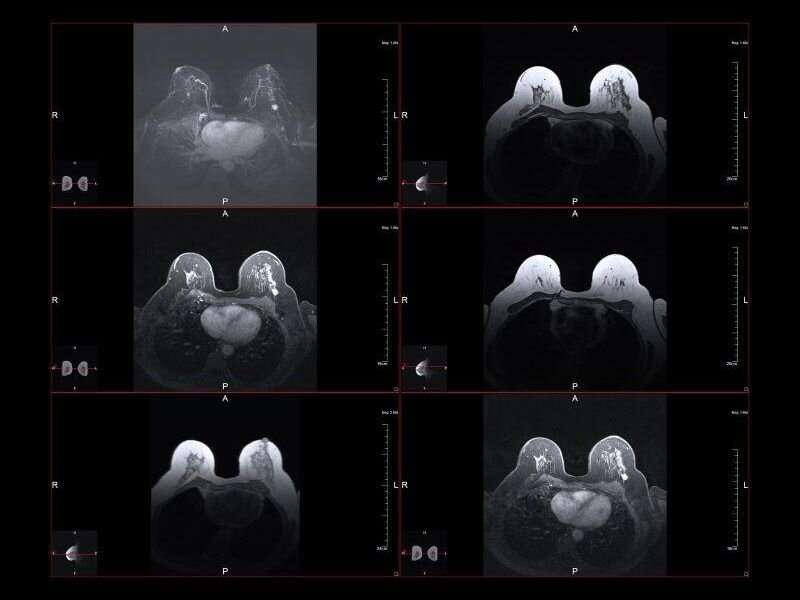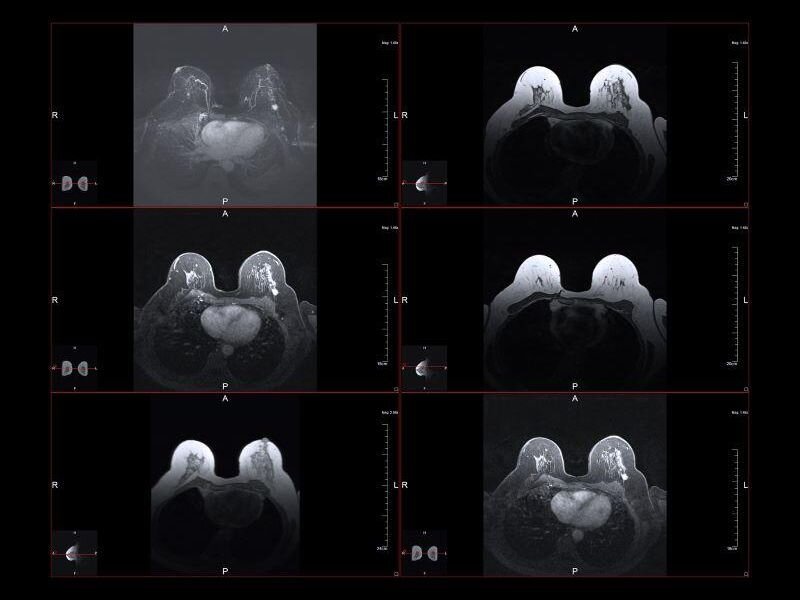
A deep learning (DL) system could improve the diagnostic accuracy of dynamic contrast-enhanced magnetic resonance imaging (DCE-MRI) of breast tissue for detecting breast cancer, according to a study published in the Sept. 28 issue of Science Translational Medicine.
Jan Witowski, M.D., Ph.D., from New York University Grossman School of Medicine in New York City, and colleagues used a DL system to improve the overall accuracy of breast cancer diagnosis and to personalize the management of patients evaluated with DCE-MRI.
The researchers found that the system achieved an area under the receiver operating characteristic curve of 0.92 on the internal test set (3,936 exams). No statistically significant difference was seen between five board-certified breast radiologists and the DL system in a retrospective reader study. When radiologists’ predictions were averaged with DL’s predictions, there was an improvement noted in radiologist performance. The generalizability of the DL system was demonstrated using datasets from Poland and the United States. Consistent results were seen in a subgroup analysis across different cancer subtypes and patient demographics. The DL system could reduce unnecessary biopsies in the range of clinically relevant risk thresholds; this would allow avoidance of biopsies yielding benign results in up to 20 percent of patients with Breast Imaging-Reporting and Data System (BI-RADS) category 4 lesions.
Source: Read Full Article
